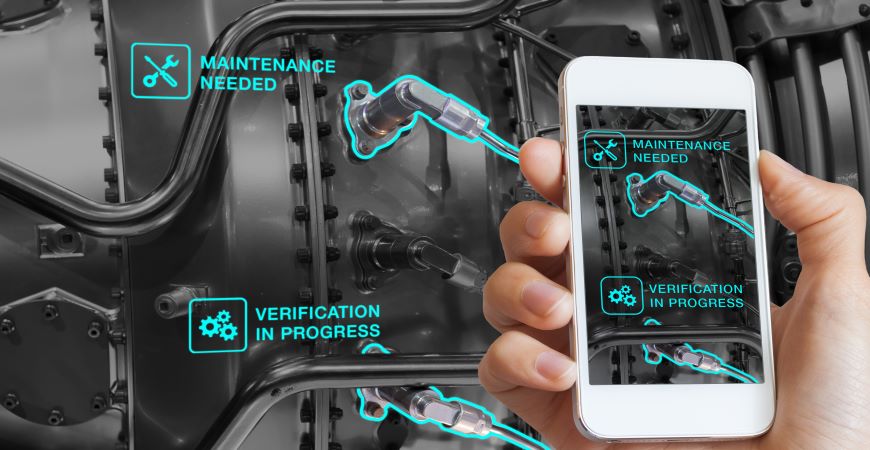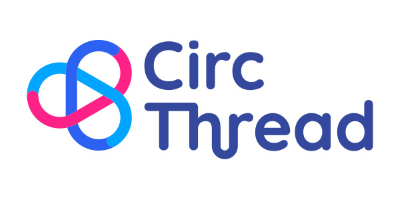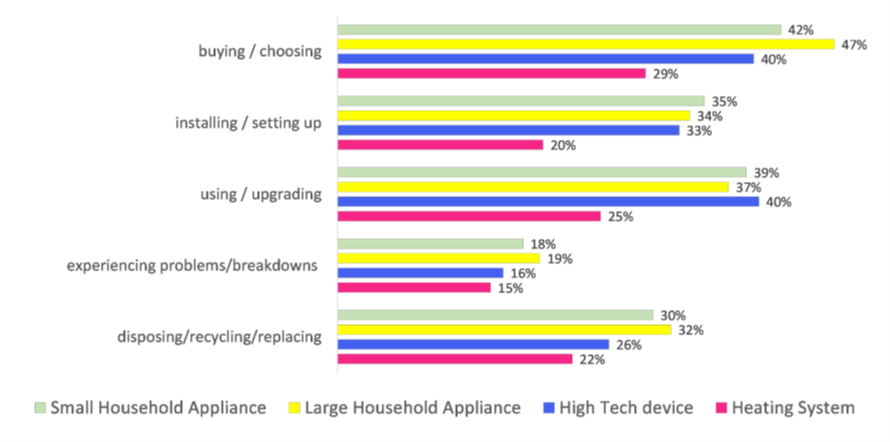This website uses cookies so that we can provide you with the best user experience possible. Cookie information is stored in your browser and performs functions such as recognising you when you return to our website and helping our team to understand which sections of the website you find most interesting and useful.
CircThread: consumers tell us what they need to make circular solutions work

Euroconsumers CircThread survey shows detailed consumer insight is vital if we want to shift to a circular, sustainable economy.
Circular consumer product markets are needed more than ever. In a circular economy, waste is designed out of the system and resources are reused multiple times.
But shifting to a supply chain that cuts out waste and prioritizes repair requires a change in practice and mindset from each and every player in the supply chain.
Euroconsumers members’ CircThread Survey shows that while at least 29% of consumers are confident at choosing high value household products, at the most only 19% feel well informed about what to do if they break down.
CircThread: Shifting to a circular consumer product market

Euroconsumers’ members OCU in Spain and Altroconsumo in Italy are part of the CircThread project which is working out how to make the vital shift to a circular economy happen across the whole market. Launched in 2021, this four-year multistakeholder programme is part of EU Horizon 2020 and involves 34 partners all committed to proving the concept of circularity in consumer products can work.
The project will demonstrate how to create long lasting appliances, deliver affordable repair, and will set a new bar for the recycling of household products. Its focus is on products like vacuum cleaners, fridges, dishwashers, mobiles and laptops as well as bigger home heating systems.
OCU and Altroconsumo are an integral part of the project working alongside manufacturers, repairers, recyclers, universities, research institutions and innovative companies to identify and test solutions.
They bring a great deal of expertise to the consortium in consumer behaviour, experience in testing products and knowledge of how to communicate helpful product information to people.
CircThread digital platform: sharing information across the supply chain
A key component of the CircThread project is the development of a digital platform where important information on the lifecycle, repairability and durability of consumer products can be collected and shared. Consumers would register their product on the platform, which would have its own unique digital ID enabling its performance to be tracked across its lifecyle.
The platform would amass valuable information on durability, usage and common repair needs which would be open to consumers, manufacturers, retailers and repairers.
Providing open access to detailed information on product components, construction and how it can be repaired or recycled will help consumers make decisions about purchases, repairs and disposal.
However, to maximise the potential of the platform, the perspectives and needs of consumers must be considered at the design stage. They will be central to its success, and will need to see the value in it, be able to find the right type of information and be comfortable uploading and sharing information about their products and usage.
Consumer insight vital for successful digital tools
OCU and Altroconsumo’s knowledge of consumer product information and online behaviour is key to the design of the platform and making sure that it works in theory and in practice.
The organisations ran a survey with consumers in Italy, Spain, Belgium and Portugal to find out what would incentivise them to use the platform and what might put them off. The results will feed into the design specification of the platform. In total, 5,665 participants aged 25-64 years old were surveyed and asked about four product categories: small household appliances, large household appliances, high-tech devices, and heating systems.
Gaps in information
There are currently significant gaps of information, especially when faced with product breakdowns and disposal. When all the products categories were considered at least 29% of people felt very well informed about buying and choosing products but at most only 19% felt very well informed about what to do when they broke down. There were low figures too when it came to knowing how to dispose or recycle products at the end of their lifecycle, with only 32% at the most feeling well informed.
Percentage of people perceiving themselves as ‘very well informed’ in the different lifecycle phases

The right information
The survey revealed that consumers don’t feel they have enough information on how to make the most sustainable choice when it comes to fixing or replacing a product. They would welcome better information through repair guidance and services and information on the estimated cost of a repair. Information on how to best install and use a product to increase its lifespan and how to maintain it would also be very useful.
Trust in who runs the platform
Consumers thought the platform was a good idea, with some reservations about who controlled and monitored the tool. They did not mind registering the product on a platform, especially if it was supervised or by manufacturers but were less comfortable if it was supervised by a community of users or a public administration.
Digital product ID and privacy
The survey also looked at what might hold people back from registering products with a trackable, digital ID on the platform. It found people were wary about sharing information about their products on a digital platform, and concerns about privacy could be a major barrier to registering products.
This is understandable given the amount of data and information that could be gleaned from usage of products like phones or other connected devices like robot vacuums or smart energy systems which collect data about location and behaviour.
They felt it was important that they remained anonymous, with only the product being registered and not the owner. They also raised concerns about being targeted with adverts once they’d shared information on the platform.
Consumer appetite to upload information
Consumers reported that they would be willing to make the effort to report problems, briefly describing breakdowns and failures, and report when the product reached end-of-use etc. This is positive news and shows an appetite to support other consumers and manufacturers.
In terms of what additional services they’d like to get out of the platform, there was clear interest in support and advice for managing small or even major product breakdowns, and a preference for providing a home pick-up service for items that need repair or recycling.
When asked about paying a fee to use the platform, consumers were less willing but if clear benefits such as valuable and useful information were available, their willingness to pay was higher.
Next steps for successful circular tools
Consumers’ willingness to give feedback on product performance and repairs, and their appetite for more information and services to help with repairs and recycling is a positive sign. However, platform designers should make sure that product digital IDs are not linked to individual owners and that the platform is managed in a trustworthy and transparent way.
The research made clear that consumers’ awareness of the need for more sustainable markets, and willingness to make an effort to help are not enough on their own – privacy, trust and the right information at the right time will be key to any solution.
The survey results show how important it is to include consumer needs right from the very start of any systemic solution. Euroconsumers, OCU and Altroconsumo can leverage their consumer research experience to help developing effective and long-lasting responses to the challenge of circular product markets.



